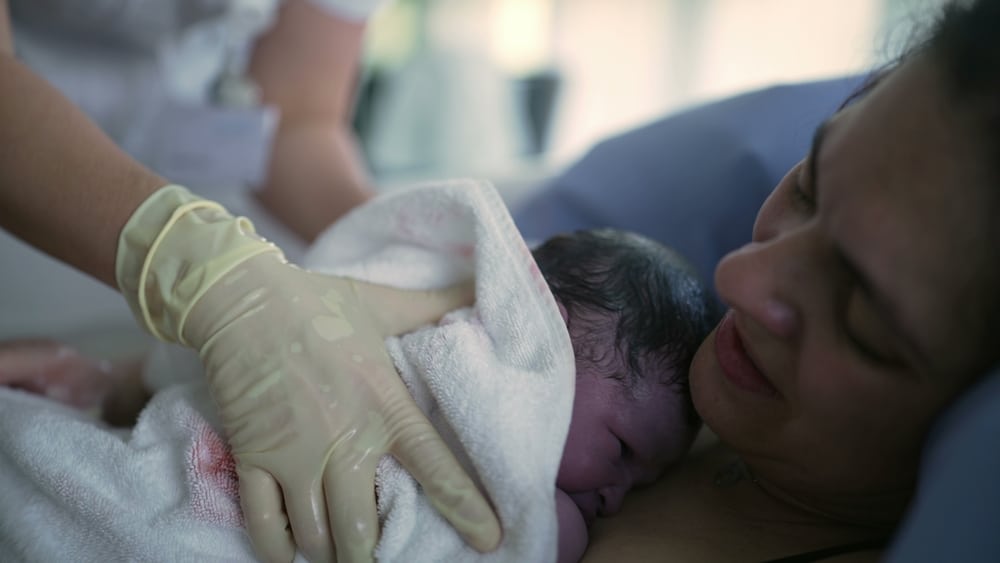If you’ve been following the maternal health crisis in the United States, you may already be aware of this alarming statistic: Black women are three times more likely to die from pregnancy-related complications compared to their white counterparts.
Although the maternal mortality crisis is finally receiving increased scrutiny, a significant recent initiative emphasizes urging Black mothers to voice their concerns. The underlying belief is that advocating for oneself can be lifesaving. The Washington Post has recently highlighted efforts to empower Black mothers to articulate their needs before, during, and after childbirth. However, this strategy represents merely a step in the right direction—not a comprehensive fix.
Current Developments
Across the country, initiatives are emerging that instruct Black mothers on how to advocate for themselves in maternity wards. Nurses and doulas are training these women to “speak up” when they sense something is amiss. The Post illustrates this with a specific instance:
Ariel Freeman, a Black mother from Brooklyn, experienced severe hemorrhaging after giving birth and had to consistently ask for assistance before receiving the emergency treatment that ultimately saved her life. Her pregnancy coach, a nurse involved in a program for new mothers, emphasized the mantra: “They won’t listen, so you speak up.”
This is not merely a theoretical concept discussed in prenatal courses—Black mothers like Freeman are facing this reality firsthand. Freeman attributes her survival to her determination. Nonetheless, why should women have to battle for their safety during childbirth or in the postpartum period?
The challenge lies not in the need to ask for help, but rather in systems that are not designed to respect or respond to the needs of Black women. Racism within healthcare and society at large has detrimental effects. Issues like poverty, chronic stress, financial hardship, and being disregarded by medical professionals create an environment that harms maternal health. This situation goes beyond issues of wealth or social standing. Even Serena Williams, one of the most affluent and recognizable figures globally, found herself needing to insist on medical care when facing life-threatening complications post-delivery. If this can occur to Serena Williams, what about Black mothers who lack similar structural advantages?
The Limitations of “Speak Up”
Encouraging Black moms to advocate on their behalf is a vital and powerful message. However, it places the onus of survival on those who are already at the most significant risk. It demands that they confront a system when they are most vulnerable. While advocacy is necessary, it should not be the sole focus. Mothers merit healthcare systems that aid instead of obstruct their health.
Necessary Changes for Black Moms
We must advance beyond simply urging Black women to advocate for themselves and begin transforming the systems that necessitate such advocacy. Here are several potential changes:
- Enhanced training for healthcare providers: Incorporating anti-racism training into the education of nurses, midwives, and physicians should be mandatory, rather than merely optional as it is today.
- Broader access to care: Initiatives offering free doulas to advocate for mothers during childbirth (available in states like New York and Texas) can be life-saving. These should be made universally accessible.
- Support at the policy level: Paid family leave, postpartum care, affordable childcare, and continued support for families are not luxuries—they are fundamental requirements for ensuring the safety and wellbeing of mothers. For instance, the implementation of comprehensive federal policies, including universally accessible paid family leave and guaranteed access to culturally competent doulas and midwives, could directly tackle the disparities facing maternal care. Although state-level initiatives are a starting point, nationwide reforms rooted in equity are vital for genuine improvements.
- A shift in culture: Recognizing and respecting Black mothers warrants an urgent response to the wider maternal mortality crisis.
While advocating for oneself is a valuable strategy, it does not serve as a complete solution. Mothers should not have to shout to be acknowledged; they should be treated with respect and attention from the outset. It’s time to support Black mothers, rather than placing the burden solely on them.
Image Source: Bricolage / Shutterstock



































